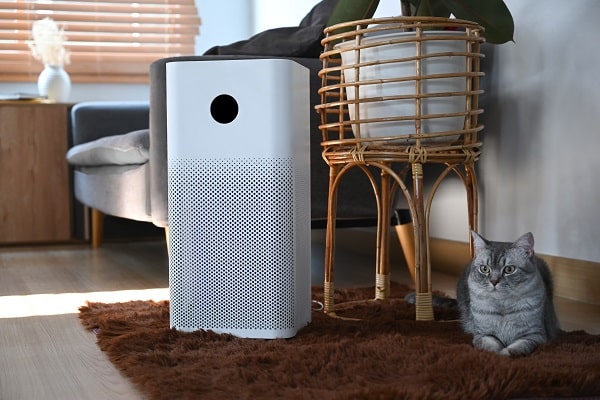Allergies are a common issue affecting millions of people worldwide. They occur when the immune system overreacts to allergens, resulting in symptoms such as sneezing, itching, and congestion. While many people rely on medication to manage their allergies, there are also natural remedies and prevention tips that can provide relief. This article will explore these alternatives, discussing dietary changes, immune system support, and other strategies that can help alleviate allergy symptoms without relying solely on medications.
Contents
- Understanding Allergies: Causes and Symptoms
- Dealing With Allergies: Natural Remedies
- Dietary Changes To Combat Allergies
- Strengthening The Immune System
- Using HEPA Filters For A Cleaner Home Environment
- The Role of Probiotics In Allergy Management
- Allergy-Friendly Landscaping And Gardening Tips
- The Benefits Of Aromatherapy For Allergy Relief
- Creating An Allergy Prevention Plan
- Combat Allergies Naturally With These Remedies!
- Related
Understanding Allergies: Causes and Symptoms
Various allergens, including pollen, pet dander, mold, and certain foods, can trigger allergies. These allergens provoke the immune system to release histamine, a chemical responsible for inflammation and familiar allergy symptoms. Symptoms may include sneezing, itching, congestion, and watery eyes. The severity of these symptoms can vary from person to person, and the specific allergens causing the reaction may be different for each individual.
Dealing With Allergies: Natural Remedies
The first step in dealing with allergies is to identify the allergens causing your symptoms and take steps to avoid them. This may involve monitoring pollen levels, investing in allergy-proof bedding, or making dietary changes. In addition to avoidance, several natural remedies can help alleviate allergy symptoms. These include saline nasal rinses, which can help clear nasal passages of allergens and reduce congestion; herbal supplements like butterbur and quercetin, which have been shown to have antihistamine properties; and acupuncture, which some studies suggest may help relieve allergy symptoms.
Dietary Changes To Combat Allergies

The food you consume can significantly impact your overall health, including how your body reacts to allergens. Incorporating anti-inflammatory foods into your diet can help reduce inflammation and alleviate allergy symptoms. Some examples of these foods include fatty fish, such as salmon and mackerel; leafy greens, like spinach and kale; and nuts, particularly almonds and walnuts. In addition to adding anti-inflammatory foods, it’s essential to identify any potential food allergens and eliminate them from your diet, as they can exacerbate allergy symptoms.
Strengthening The Immune System

A strong immune system is crucial for overall health and can help reduce allergy symptoms. By supporting your immune system, you can help your body better respond to allergens and reduce inflammation. One way to do this is through regular exercise, which has been shown to boost immune function. Additionally, getting enough sleep and managing stress are vital for a healthy immune system. Aim for seven to eight hours of sleep each night, and incorporate stress-reduction techniques, such as meditation or yoga, into your daily routine.
Using HEPA Filters For A Cleaner Home Environment

High-efficiency particulate air (HEPA) filters can significantly reduce allergens in your home, helping to alleviate allergy symptoms. These filters can be found in air purifiers and vacuum cleaners, and they work by trapping particles such as dust, pollen, and pet dander. To maximize your HEPA filter’s effectiveness, clean or replace it regularly, as recommended by the manufacturer. Additionally, consider placing an air purifier in rooms where you spend the most time, such as the bedroom or living room.
The Role of Probiotics In Allergy Management

Gut health plays a crucial role in your overall well-being, and recent research has indicated a link between gut health and allergies. Probiotics, which are beneficial bacteria, can help promote a healthy balance of gut flora and may assist in reducing allergy symptoms. You can find probiotics in yogurt, kefir, sauerkraut, and other fermented foods. Alternatively, probiotic supplements are available for those who prefer a more concentrated source. When choosing a probiotic, look for products containing a variety of strains and a high number of colony-forming units (CFUs) to ensure you’re receiving an adequate dose.
Allergy-Friendly Landscaping And Gardening Tips

Your outdoor environment can also play a significant role in allergy symptoms. By choosing allergy-friendly plants for landscaping and gardening, you can reduce the number of allergens present in your outdoor spaces. Opt for plants with low pollen production, such as hydrangeas, azaleas, and begonias. Additionally, consider incorporating hardscaping elements like patios, decks, or gravel paths to minimize the need for allergy-inducing plants. To further reduce allergens outdoors, keep your lawn mowed and weeds under control, as these can harbor allergens and contribute to your symptoms.
The Benefits Of Aromatherapy For Allergy Relief

Aromatherapy, using essential oils extracted from plants for therapeutic purposes, has been gaining popularity as a natural remedy for various ailments, including allergies. Many essential oils have anti-inflammatory, antihistamine, and decongestant properties, which can relieve allergy symptoms.
One essential oil commonly used for allergy relief is eucalyptus oil. This oil has anti-inflammatory properties and can help open airways, making breathing easier during allergy flare-ups. Peppermint oil is another popular choice, as it can act as a natural decongestant and provide a cooling sensation that can alleviate sinus pressure and discomfort. Lavender oil, known for its calming and soothing effects, has also been found to have anti-inflammatory properties that may help reduce allergy symptoms.
Creating An Allergy Prevention Plan

A comprehensive allergy prevention plan is essential for effectively managing your allergies. This plan should include regularly cleaning your home to remove allergens like dust, pollen, and pet dander. Always vacuum frequently, using a vacuum cleaner with a HEPA filter, and dust surfaces with a damp cloth to trap and remove allergens. Monitoring local pollen levels can also help you plan outdoor activities accordingly, avoiding peak allergy times when pollen counts are highest. Remember to change your clothes and shower after spending time outdoors to remove any allergens you may have brought inside.
Combat Allergies Naturally With These Remedies!
Natural remedies and prevention tips can effectively deal with allergies without solely relying on medications. By making dietary changes, supporting your immune system, implementing strategies like HEPA filters, and creating an allergy prevention plan, you can reduce your symptoms and enjoy a higher quality of life. Remember that each person’s situation is unique, and it may take some experimentation to find the best strategies for you. However, by being proactive and taking control of your allergies, you can significantly improve your well-being and minimize the impact allergies have on your daily life.


